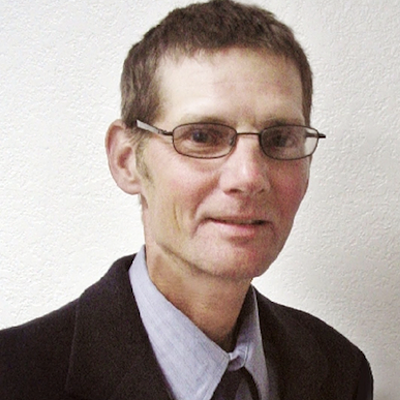"I think people should vote No," suggests Dave Fossdal, the self-proclaimed "token Democrat" on the board of directors of the Pima Association of Taxpayers.
Criticizing the current City Council majority for its timing on the proposition, Fossdal says, "They knew this issue was coming up last year, but decided to impose the ($14 per month) trash tax anyway. This proposition should have been voted on (before the fee hike was approved). That would have indicated whether the trash tax was needed or not. Instead, the council put the cart before the horse."
On the other hand, the Tucson Metropolitan Chamber of Commerce hopes voters approve the proposition.
"We feel fairly confident the current mayor and council spend (taxpayers' money) responsibly," declares John Dougherty, the Chamber's director of government affairs. But just in case they don't, he says his organization has a watchdog committee to check on the council's spending habits.
To regulate local governmental spending, Arizona voters 25 years ago approved budgetary limitations that established annual maximum increases based on inflation and population growth. By wide margins, Tucson voters in 1987 approved five measures that allowed various city departments--water, transportation, police, fire and parks--to exceed those limits by amounts ranging from $4.9 to $16 million over a 10-year period.
Having been operating under the state's budget formula since then, the city estimates that by using the approved revenue figures, over the next four years it will be able to spend approximately $4 billion. Projections indicate, though, that the municipal government will collect $100 million more than that in taxes, fees and revenue-sharing funds.
To allow that extra money to be spent, Proposition 400 allows financial "Home Rule" for a four-year period. Dozens of other Arizona communities now use that same provision, and the city's director of budget and research, Jim Cameron, thinks it is time Tucson does also.
Asked why a mere 2.5 percent of the total budget is so critical to the community, Cameron says: "It's kind of a quality of life thing. What is the right level of service?"
Cameron indicates that if the proposition passes, the extra money will be spent on programs such as police and fire protection, Van Tran service for the disabled and a regular street maintenance effort. Plus, he adds, facilities being built with city bond funds approved five years ago by city voters could be staffed using the additional spending authorized by the current measure.
If the proposition fails, Cameron suggests those things won't happen. "If we stay under the state funding formula," he says, "we'll forever be delivering only the services existing in 1987."
Cameron emphasizes that defeat of the proposition would probably only mean the extra $100 million would be placed in city reserve accounts. Acknowledging that taxes and fees could be reduced accordingly if 400 is shot down on Nov. 8, Cameron quickly points out that some levies like the primary property tax bring in very little money to city coffers.
But, Cameron repeats, the real question is what current services would be reduced or eliminated if Proposition 400 loses. He additionally worries about the state of Arizona slashing its revenue-sharing funds to Tucson under the same scenario.
"The state is always looking to reduce the money it provides to cities," Cameron says. "If they see us not doing our share, it's another reason for them to cut our funding."
While Cameron admits some Tucson Water rate increases may occur over the next four years even if the proposition is approved, he says other tax and fee hikes are not built into the revenue projections on which the measure is based. He also says that if the council wants to raise more money than authorized by the proposition, it would be "tricky."
Cameron believes that before raising more revenue by increasing taxes and fees, City Hall would first look to reduce expenditures in order to balance its budget. The council can, however, vote to exceed the spending limitations in case of an emergency.
"We're working under the premise that we'll live with our existing revenue stream," Cameron says. He believes voters should OK the proposition. "It's an issue of services that need to be provided. Things like parks, police and fire."
Before Tucson voters approved the 1987 budgetary increases, out of the five measures on the ballot, the Chamber of Commerce supported only extra spending by Tucson Water. They expressed concerns about fiscal accountability and shifting budget capacity by the Democratic-led City Council.
Eighteen years later, former Democratic council candidate Fossdal has worries about the present Republican-controlled municipal government. Blasting the current council majority as lacking in both vision and leadership, he calls them reactionary instead of proactive. For that reason and others, he hopes voters reject Proposition 400.











